Passing the Torch: With Guidance From His Dad’s Career in the League, Rising Junior Tajh Ariza is Ready to Make the Family Name His Own
The first time Trevor Ariza noticed his son was different was in a fourth-grade basketball game. After breaking down a poor 8-year-old with a single move, Tajh Ariza drove into the paint and kicked the rock out to an open shooter with a seamless behind-the-back pass. “The timing was perfect. It was in stride. It was just a perfect pass,” Trevor says.
It’s a typical sunny day on the west side of L.A. and Trevor, Tajh and Tristan Ariza are trying to see who can hit a half-court shot first. It’s been two years since the NBA champion and L.A. native retired, and today, he’s back on the campus where his basketball dominance began. Except Trevor’s not the one in his old white, red and black threads. His oldest son, Tajh, is.
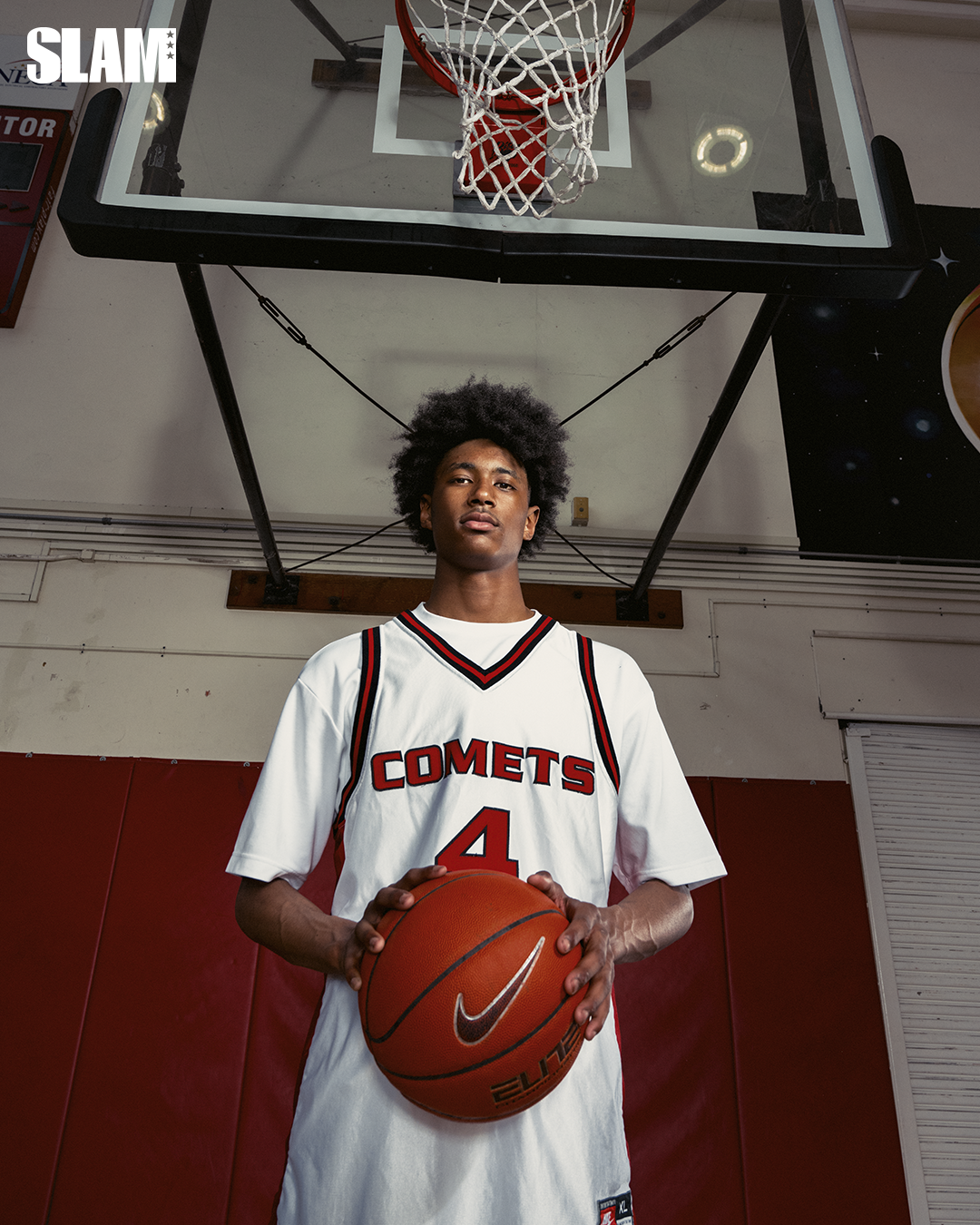
Tajh is currently one of the top 16-year-olds in the nation, and come next fall, he’ll be running the gambit on the same court his dad did. After finishing the basketball season at St. Bernard HS, Tajh soon after transferred to Westchester this spring.
Inside the school’s gymnasium, Tajh stands at halfcourt surrounded by a sea of red, black and white, from the “Comets” branded bleachers and walls to the shades of his dad’s original No. 4 home jersey that he’s wearing. The faded banners showcasing Trevor’s two state titles with the Comets hang proudly as father and son pose for flicks. Even in this moment, Trevor’s influence is ever-present. It’s surrounded Tajh since he was a baby, dribbling around with Kobe and Derek Fisher. Yes, he’s the son of an NBA player. But Tajh Ariza’s game is entirely his own.
“I gotta keep putting in work every day,” Tajh says. “You know, my dad [had a] great career, but I want to have my own name and show people like, Oh, I want to be like him, you know? So I just gotta keep working so I can get there.”
The 6-8 rising junior exploded on the recruiting circuit and is now considered top-10 in the class of 2026. After his freshman year, he held just three major DI offers. In the span of five months last year, he racked up five more. This past spring he received an invite to USA Junior National Minicamps, and over the summer he was playing up with Team Why Not 17U on the EYBL circuit. Things are just clickin’.
But the path wasn’t so easily laid out. Trevor let Tajh find his own love for the game. He didn’t push, he didn’t nudge; he sat back and watched his son discover their now shared passion.
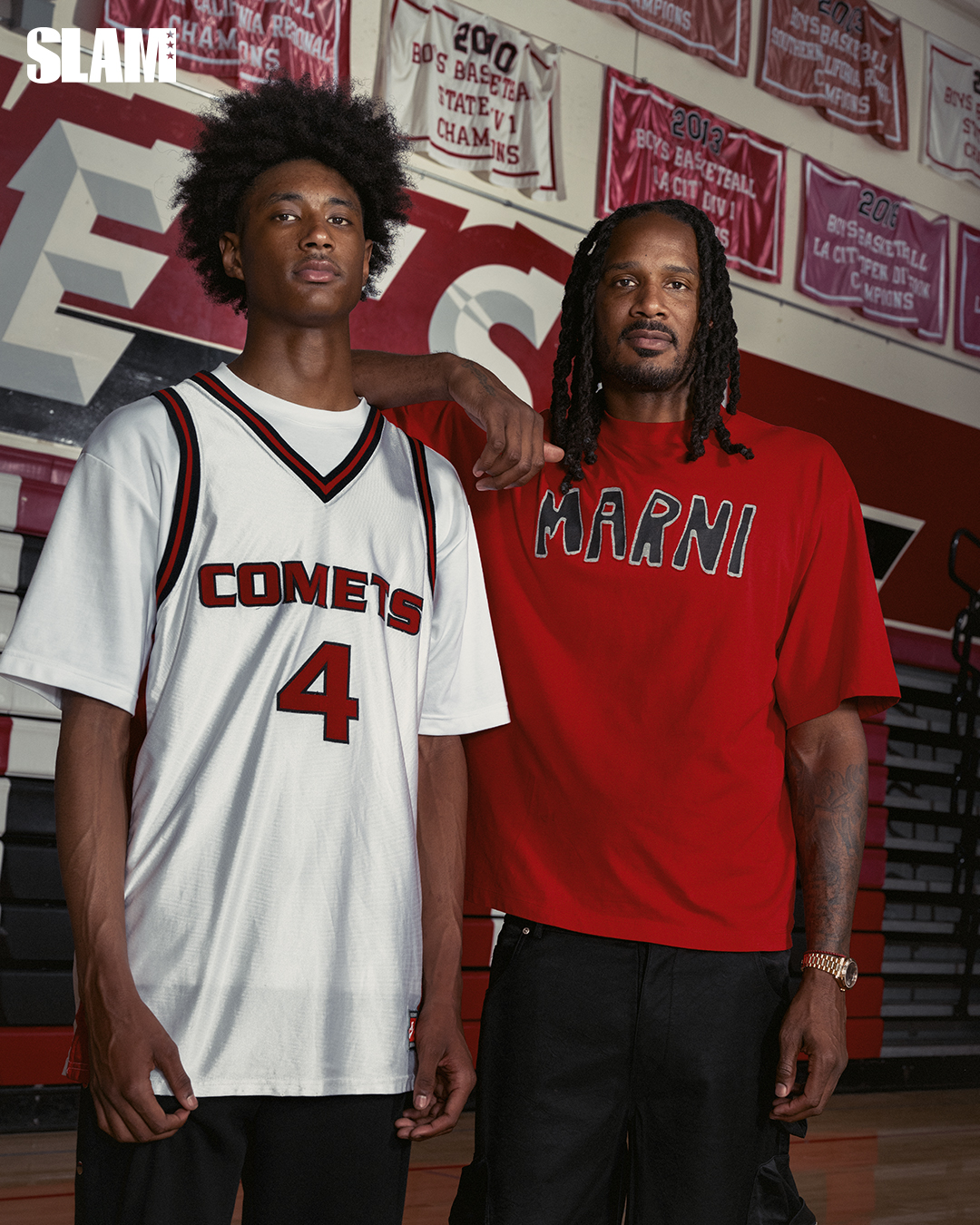
“My idea for him was always right before he got to high school, if he was serious about it, I would give him all the tools that I use or the things that I learned to help him. So I would say when he got serious—about wanting to get better or actually work at basketball—was going into the ninth grade,” Trevor says.
Tajh agrees. He loved the game, but there’s a vast difference between loving to play and loving something enough to commit yourself to 5 a.m. workouts, two-a-days and a grueling 82-game season.
“I had to change my habits. Before maybe middle school, I didn’t really take it as seriously. It was just fun for me I guess. Of course, it’s still fun,” Tajh says, “but now I see that I have a real chance at what I want to do and be great. And I just kept going. I just took it.
Right before Tajh entered his freshman year, Trevor laid out what it would look like for his son to reach his highest potential. It ended with a soft yet subtle reminder: It’s time to kick it into the next gear. “I sat down with him and told him that it’s not gonna be fun. A lot of the time, it’s not gonna be easy. It’s gonna take a lot of sacrifice. And most kids, when they hear sacrifice or take away fun or free time, they kind of shy away from things. Lucky for me, he wanted to do it. So it was easy,” Trevor says.
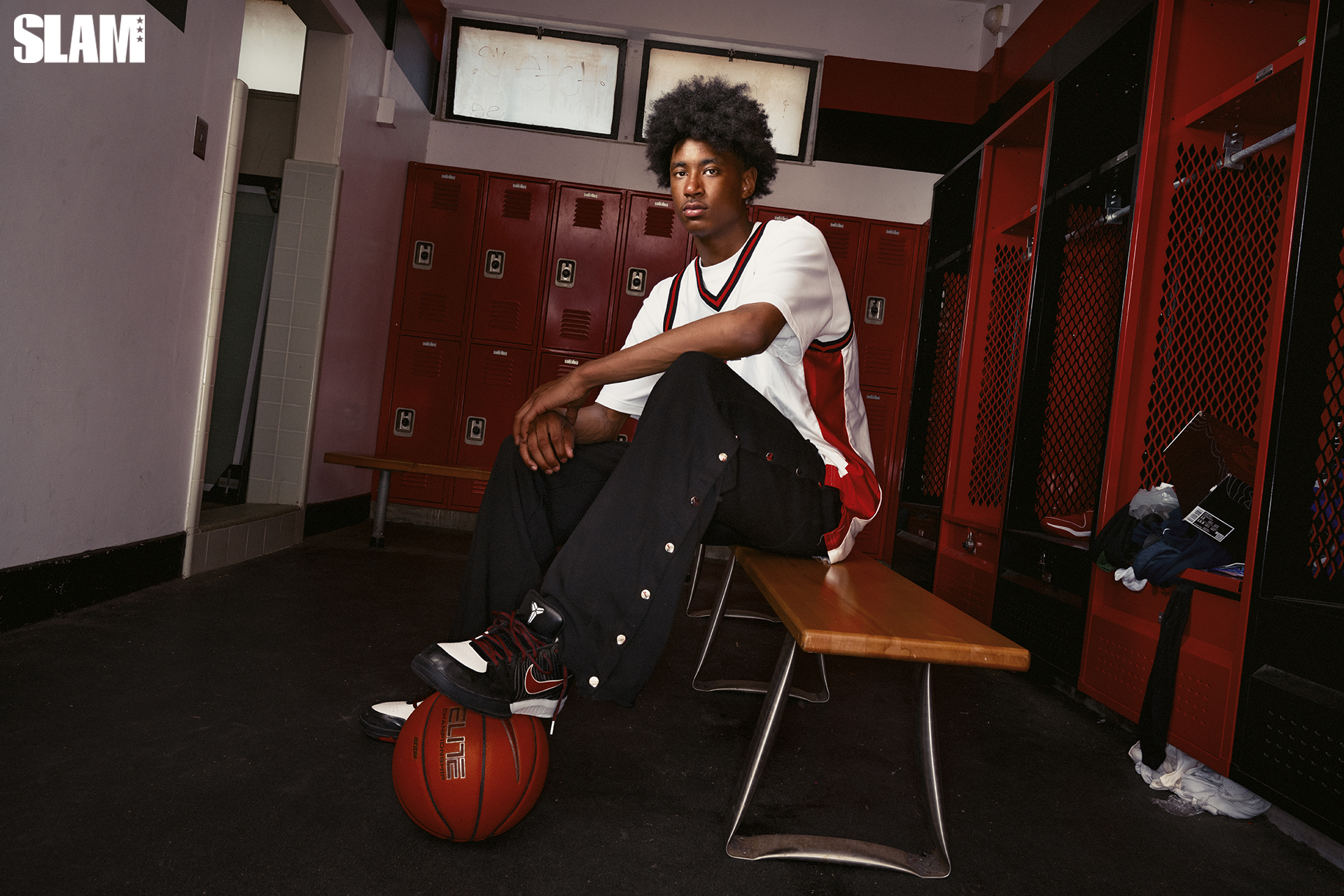
In the year since, Tajh and Trevor have built out a dedicated plan. At least three times a week before school, they either lift or grind through sand drills with Trevor’s old Hoop Masters teammate. Working in the soft sand of L.A.’s beaches is taxing, exhausting, unnerving—all the above. But his explosiveness has taken off. “I started dunking on people, so that’s when I noticed that it started helping,” Tajh says. Off the court, he’s studying the ways larger guards like Paul George and Brandon Miller create space off the bounce.
After a shower, breakfast and school, Tajh will hit whichever program they didn’t do in the morning before heading to the court for myriad of shooting and ballhandling drills. From the gym to the sand dunes, Trevor is right there with his son.
Tajh’s dedication is persistent, a combination of witnessing the professional traits of his dad’s career and the will to carve out his own legacy. Getting up at 5:30 a.m. to run in constantly shifting sand is as much of a mental workout as it is a physical one. While Tajh embraces the results of his work, Trevor views it as a mile marker for how far his son has come since their freshman year conversation.
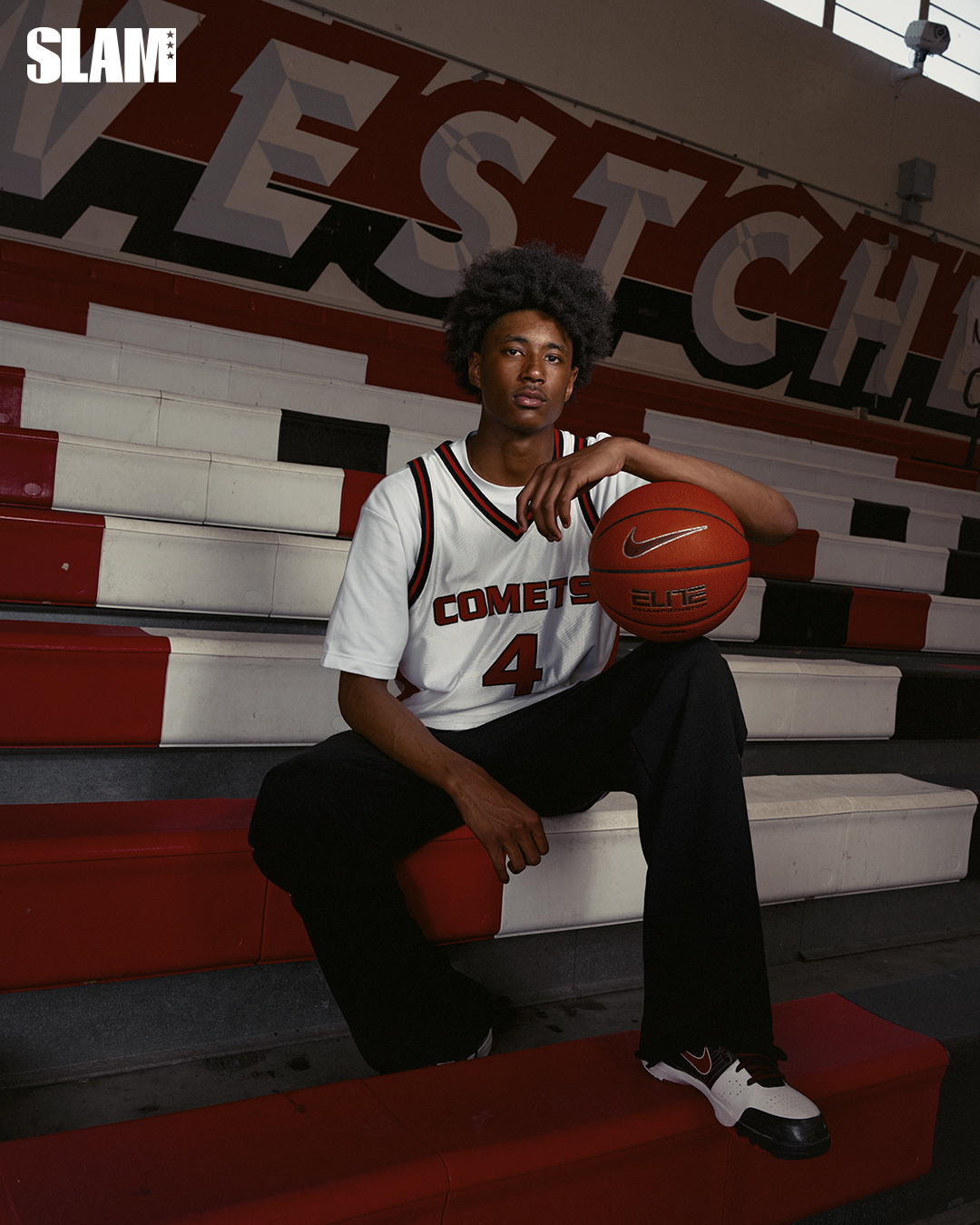
“It’s easy, for him especially being so young, to get the attention that he’s getting and kind of, like, be complacent and stuck in that. And my message to him is always just put your head down and focus on the work that you put in,” Trevor says. “Focus on the hours that you’re putting in, in the gym, in the sand, watching the game, learning the game, just focus on that. Everything else will take care of itself.”
When he moved from North Carolina to L.A. to attend Saint Bernard HS as a sophomore, Tajh says the talk around his game remained relatively quiet aside from the allure of his last name. That was until the beginning of the season when he received his first two offers from the University of Washington and USC. He’s still got the reaction video on his phone. “I was so excited. I was jumping up and down, yelling. It felt good to finally get, you know, what I felt like I deserved. But it also just motivated me to keep going. [To] just keep on stacking on that,” Tajh says.
Witnessing that joy in his own kin is a pride only a parent can experience. At the same time, Trevor has come to curtail his advice even after an 18-year career in the L that featured a 2009 championship with the Lakers and stops with 10 different organizations. The guidance he provides his sons is often rooted in the steps that he took in his journey to the NBA. And just like their games are different, so are the options and decisions available to them.
As Tajh prepares to enter his junior season and his younger brother, Tristan, gets set to start school, too, Trevor knows he can’t assume the roles of coach, dad and teacher all at once. He has to be selective and mindful of the hats he wears, and when he wears them.
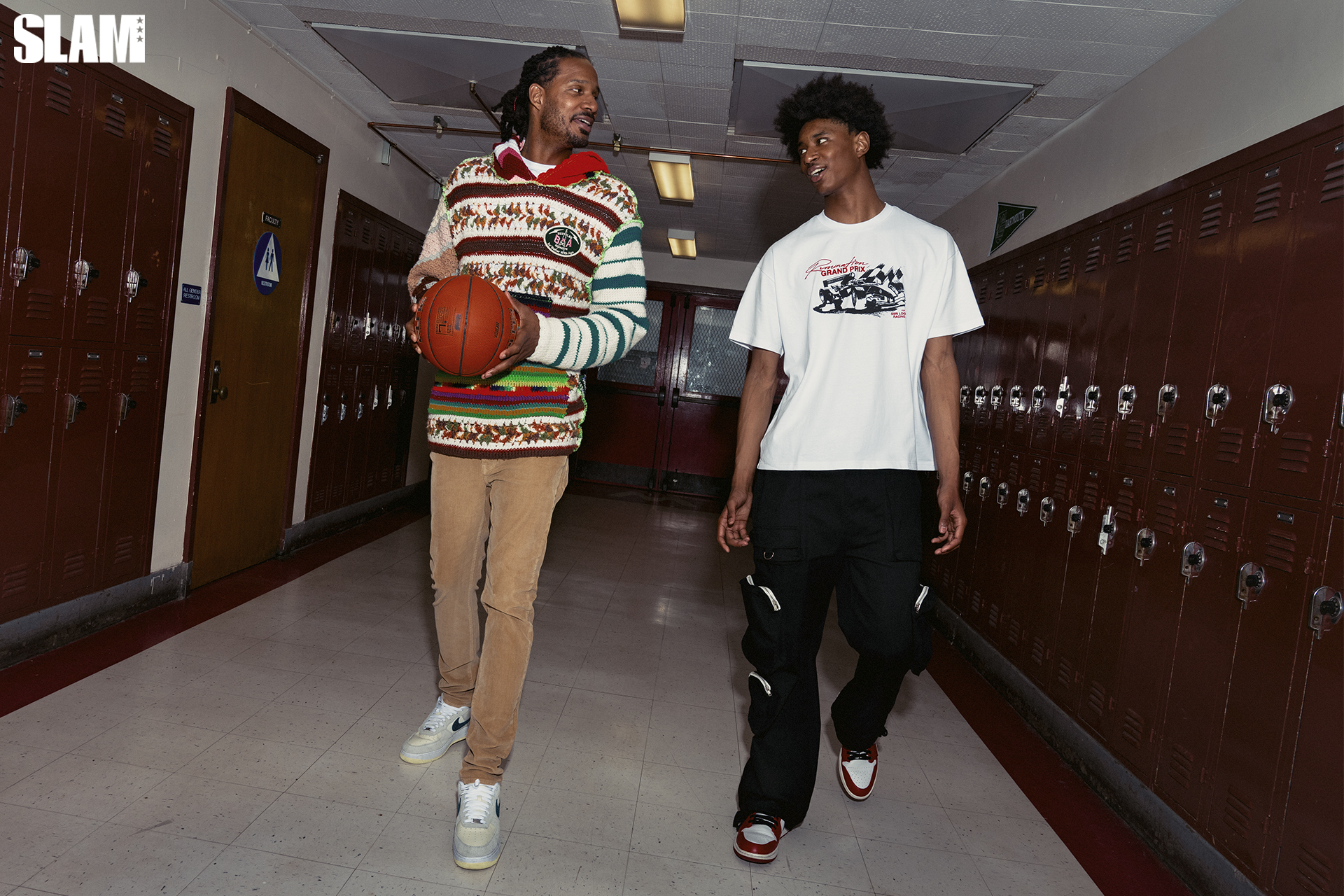
“If there’s a week where I’m heavy on, like, Clean up your room or Take the trash out. How many times I gotta tell you to take the trash out? I gotta ease up on what’s going on on the court, because I’m hard on them at home,” Trevor says.
If Tajh is taking care of business at home, Trevor will drop some more knowledge. “But again, it’s his canvas. So he has to paint it the way he sees it. I can only tweak little things or give him little nuggets until he comes to me for big things.”
Big things like transferring to your dad’s alma mater.
As he looks up at the banners placed by his dad decades ago, Tajh can feel the target on his back expanding. Teachers are already flooding him with memories of the school’s past legendary battles with crosstown rival Fairfax. But the noise is just that: noise. And as his dad walks down the halls that he once occupied, he knows Tajh is ready to fully walk into his own.
“I think for Tajh, he’s always been around it. So, it’s almost like second nature,” Trevor says. “He’s been around the environment since he could walk, since he could talk. It’s tailored for him. Some kids are born to do certain things. And to me, in my eyes, I feel like he’s one of those kids that was just born to be in this space.”
Portraits by Sam Muller.